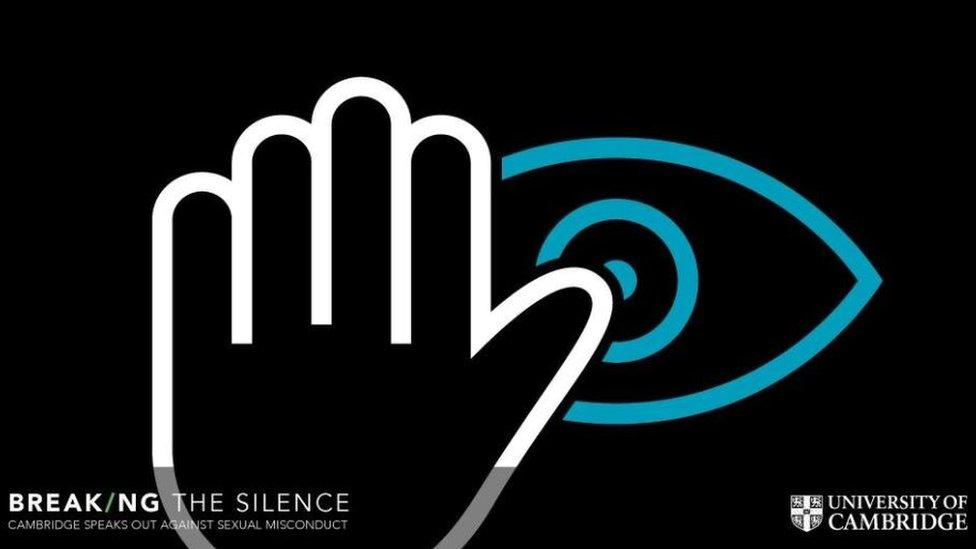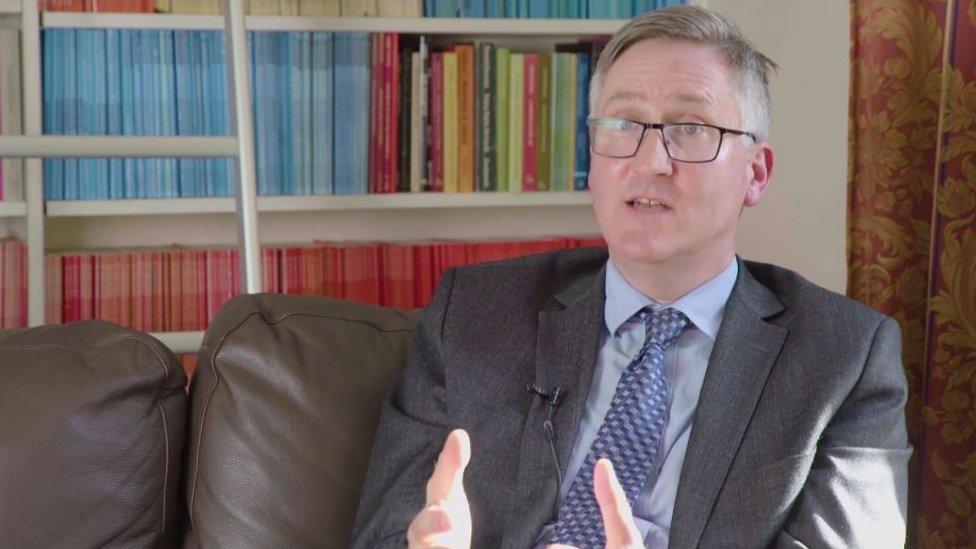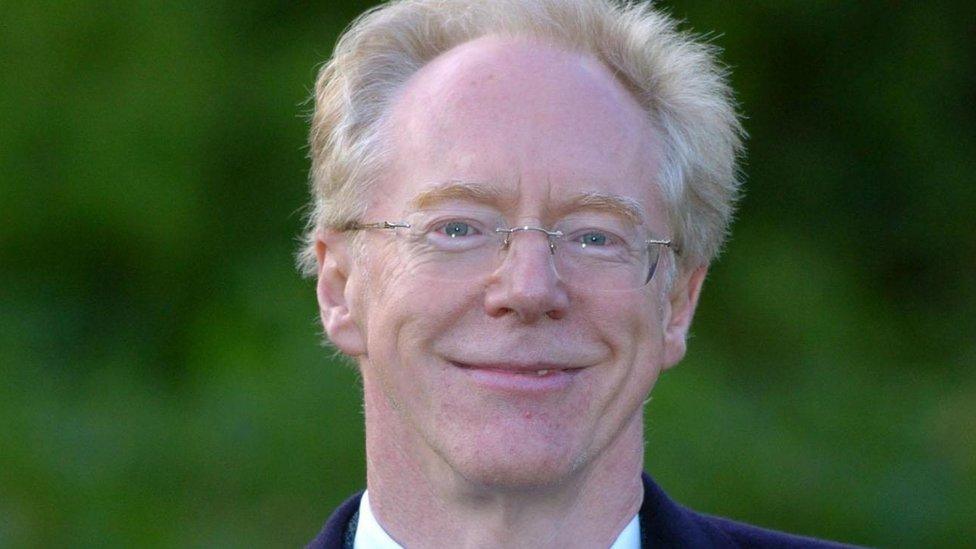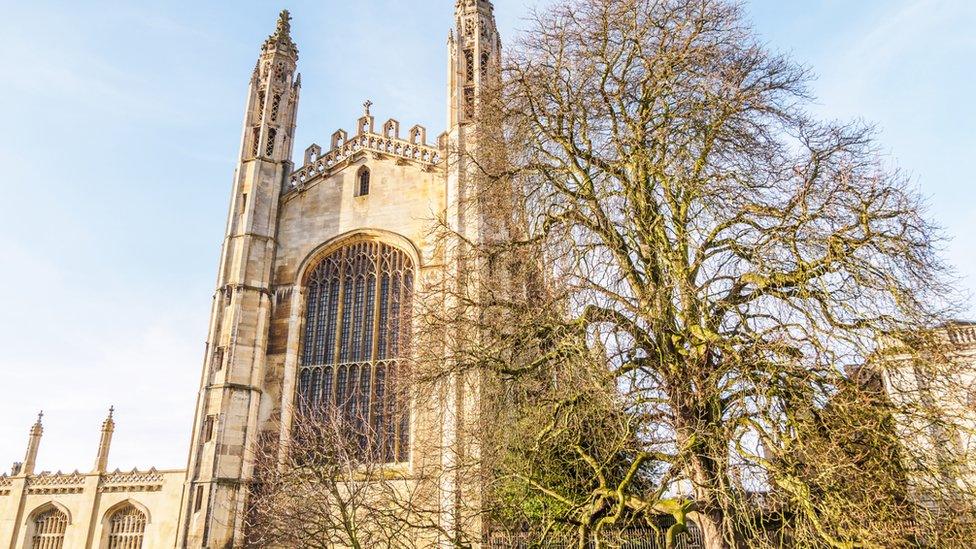Cambridge University admits 'significant' sexual misconduct problem
- Published

Cambridge University students and staff reported abuse over a nine-month period using an online form
Cambridge University has admitted it has a "significant problem involving sexual misconduct" after receiving 173 anonymous reports.
Both students and staff reported abuse over a nine-month period using an online form started in May 2017.
Of those, 119 are students complaining about other students, but two have complained about staff and some staff have also complained about colleagues.
The university said it showed students had the "confidence" to report issues.
It launched the online form encouraging students and staff to report anonymously any harassment, hate crime or sexual misconduct concerns.

The university launched an awareness-raising campaign called Breaking the Silence in October
While other universities have similar strategies, Cambridge University's pro-vice-chancellor for education, Graham Virgo, said it was "the first to publish such a high number of reports", as The Guardian first reported, external.
Writing in The Conversation, an academic news website, he said: "We expected high numbers, and view it as a metric of success.
"It appears victims have confidence in our promise that these figures will be used to judge the nature and scale of sexual misconduct affecting students and staff, and to act on it accordingly."
The university's campaigns showed that it has "a large number of Cambridge voices who have reported the issues they've faced", Prof Virgo added.

Prof Graham Virgo said the figures showed a "significant problem" within the university
In September, the university advertised for a sexual assault and harassment adviser at a salary of up to £37,000 to "bolster advice and support available to students".
It also launched an awareness-raising campaign called Breaking the Silence, external in October.
Before its Breaking the Silence campaign, 52% of those reporting recent incidents thought nothing would be done if they made a complaint. Following the launch, that has dropped to 30%, Prof Virgo said.
In the past five years, there had been fewer than six reports made formally to the university each term.
Prof Virgo added: "It supports our belief that we have a significant problem involving sexual misconduct - what we now need to ensure is that those who have been affected receive the support and guidance they need."
- Published13 December 2017

- Published10 September 2017
